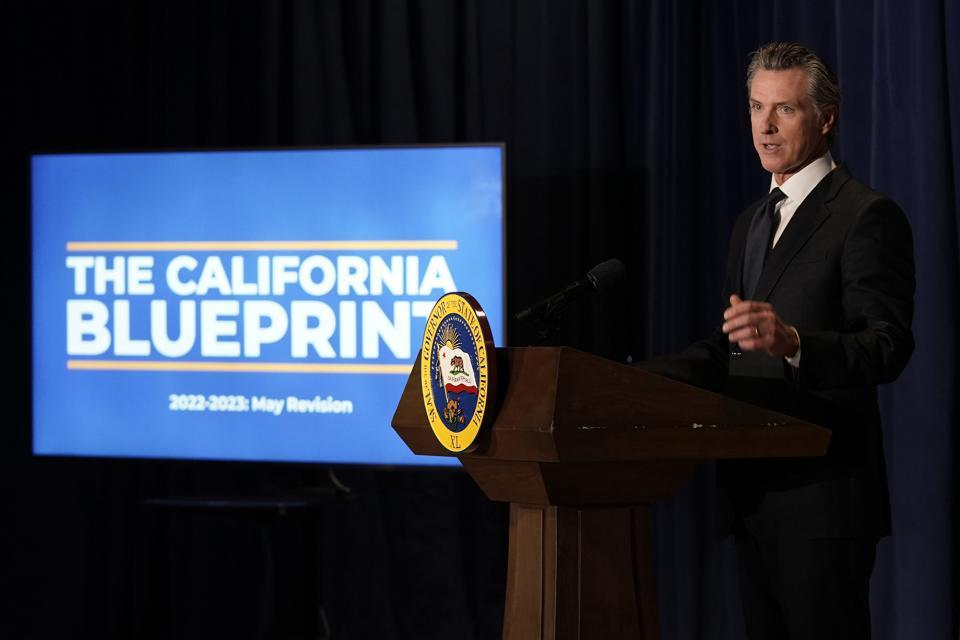INTRODUCTION
With the 2023-2024 California Legislative Session beginning, the CFT will be engaging in a new environment at the state Capitol. With several education champions reaching their term limits, and a large sector of the legislative staff turning over, the Legislative Department will be focusing on building new relationships with newly-elected legislators and their staff.
Assembly Education Chair Patrick O’Donnell has termed out, and the chair has been passed onto Assemblymember Al Muratsuchi who represents the Manhattan Beach, Torrance, and Rancho Palos Verdes areas of Southern California. Our champion on the Assembly Higher Education Committee, Assemblymember Jose Medina, also reached the end of his tenure, and has been replaced by Assemblymember Mike Fong of Los Angeles.
Senate Education Chair Connie Leyva has also reached the end of her career in the Senate and has been replaced by Senator Josh Newman who represents the northern Orange County area. The CFT will be sponsoring several pieces of important legislation and budget requests. These bills include:
- Increasing the wages of all certificated and classified workers through the state budget by 50% in the next few budget cycles.
- Lowering student-adult ratios at every school site for several grade spans.
- Expansion of the classified school employee summer assistance program to include flexibility in the use of program funds to make it easier to complete the program.
- Provide part-time classified employees with a right of first refusal to additional part-time assignments.
- Creation of workload balances for classified employees to ensure the proper number of staff at each school site.
- Extend policies that assist retiree members who wish to remain in the workforce to assist with shortages.
- Fix the unnecessary restraint on students who wish to take community-based classes in an ongoing manner.
- Address the existing cap on the number of times struggling students can attempt a course.
- Fight for budget allocations that increase office hours, pay parity, and new full-time positions within the Community College system.
- Fight to expand a statewide school greening plan for environmental justice and climate change efforts.
- Bring permanent status to adult education educators.
- Other coalition efforts will also be made to increase the transparency of data within the public education system, funding schools at enrollment rather than average daily attendance funding, addressing special education funding and caps, and protecting school bus driver jobs from outsourcing to network-based apps.
Bills must be introduced by February 17th, 2023.
OTHER HIGH-PRIORITY LEGISLATION
Given the bill introduction deadline is in mid-February, there are still legislative proposals that are being brought to CFT’s attention:
Special Session Oil Profits
The Governor has called a special legislative session in order to address the effects of oil company price gouging in the wake of historic gas price hikes in 2022. The price gouging penalty is structured to prevent oil companies from lining their pockets by hiking up gas costs, instead keeping prices low and money in people’s pockets. If an oil company violates the law by collecting excessive profits, they will be fined and that penalty money would be given back to Californians.
When a refiner’s gross margin exceeds a certain amount, the California Energy Commission (CEC) will be authorized to impose a civil penalty that would increase with the size of the price gouging. The purpose is to deter excessive pricing by refiners in the first place. While the goal of the price gouging penalty is to discourage price hikes from hitting Californians in the first place, any penalties collected will go to a Price Gouging Penalty Fund and will then go back to Californians.
In addition to the price gouging penalty, California is taking action to demand greater transparency from the oil industry to shed light on factors that increase the price of gasoline and contribute to gas price spikes. By expanding the CEC and the California Department of Tax and Fee Administration’s ability to investigate and obtain information from Big Oil, the state can evaluate costs, profits, and pricing in the refining, distribution, and retail segments of the California gasoline market, and uncover pricing irregularities in the California gasoline market and their effect on tax revenue. The Governor’s proposal will give the CEC the ability to ensure that maintenance and inventory levels do not lead to supply shortages, which have led to price hikes.
Safe and Supportive LGBTQ Training
Assemblymember Rick Zbur will be introducing legislation to require the development and implementation of an online training program for educators to support LGBTQ pupils and increase other school supports for these students. The bill has not been introduced at the writing of this report; however, the member’s office wishes to work closely with the CFT and other stakeholders on this effort.
Wealth Tax
The CFT has sponsored a wealth tax effort in the last three legislative years. This year, an identical bill will be introduced by Assemblymember Alex Lee, in conjunction with several other states that will introduce similar legislation. Assemblymember Lee has asked the CFT to sponsor this legislation again for the 2023-24 session.
Workplace Readiness Week
Educate high school students on their rights as workers in California, career technical education pathways, and brief labor history lessons.
GOVERNOR’S JANUARY BUDGET PROPOSAL
Each January, the Governor is constitutionally required to present a budget proposal for the next fiscal year. On January 10th, Governor Newsom released a light budget proposal that was affected by not only a $22.5 billion dollar shortfall from last year’s projections, but also a cyber-attack that limited the work product of the state’s Department of Finance. The Governor will release bill language that sheds more light on his proposals at the end of January, and an updated budget proposal revision in May with further detail on the state’s financial health.
Included in the January Proposal:
- Covering the current projected shortfall with the limitation of unspent dollars and holding the K-14 education budget relatively harmless at $108.8 billion Prop 98 funding.
- Maintaining $25.6 billion in reserves, including $8.5 billion in the school rainy day fund, which triggers the reserve cap on local education agencies.
- Prop 98 is slated to be “re-benched” in 2024-25 to reflect the changes made by prop 28 which increases funding for arts and music programs; lowers the current discretionary Arts, Music, and Instructional Materials block grant.
- Projects TK-12 ongoing per-pupil spending to be $128.5 Billion in 2023-24 from all funding sources, at a funding rate of $23,723 per student. State TK-12 funding per student grows to $17,534 in 2023-24.
- The budget proposes an 8.13% COLA for TK-12 including nutrition and preschool, and Community Colleges.
- $300 million “Equity Multiplier” distributed to schools with high free and reduced student lunch participation to address low-performing student groups with parental and community engagement to focus on services, support, and credentialing of new teachers to address these student groups.
- $100 million for seniors to access cultural experiences.
- Maintains the state’s 2025-26 goal for full universal transitional kindergarten implementation however maintains student-adult ratios at 12-1 rather than 10-1.
- $200 million in one-time funds for Community College student retention and recruitment.
- More information at http://budgettrack.blob.core.windows.net/btdocs2023/9.pdf
This report was prepared by the CFT Legislative Department.
FOR ADDITIONAL INFORMATION, CONTACT:
Tristan Brown, Legislative Representative, tbrown@cft.org
Michael Young, Legislative Representative, myoung@cft.org
Tiffany Mok, Legislative Representative, tmok@cft.org
Telephone (916) 446-2788




